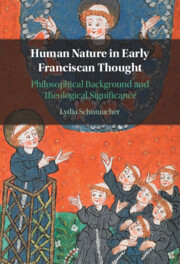The reception of Greek learning in mediaeval Islam, Judaism, and Christianity was the occasion for a profound analysis of many theological doctrines. In particular, Neoplatonism and Aristotelian philosophy led to renewed thinking about what it means for God to be the Creator of all that is. In the Latin West, Thomas Aquinas benefited from the works of Avicenna, Averroes, and Maimonides as he fashioned his understanding of creation, understood both philosophically and theologically. The recognition that creation is not a change and as a metaphysical dependence in the order of being does not challenge claims in the natural sciences (e.g., that something cannot come from absolutely nothing) are crucial features of the mediaeval heritage on the relationship between creation and the natural sciences. Indeed, Thomas Aquinas argued that an eternal, created universe was intelligible.
